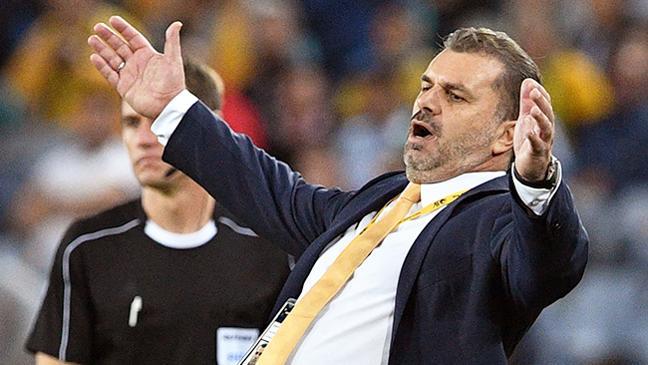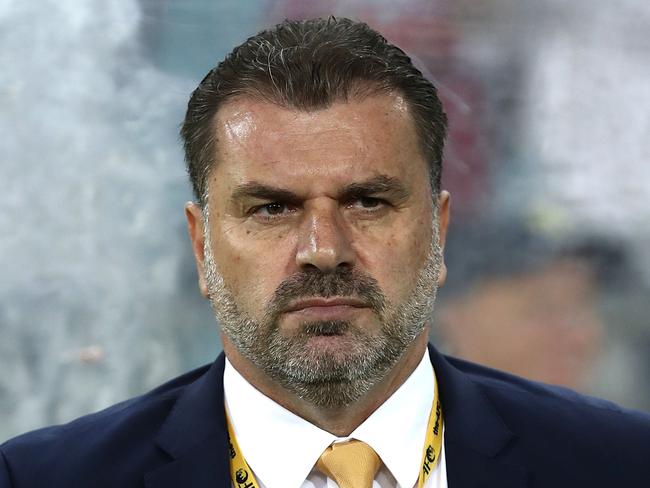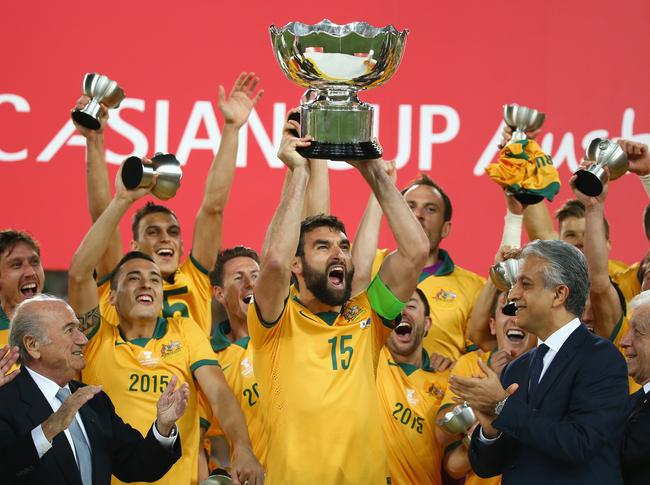How Ange Postecoglou’s bright new Socceroos era lost its sheen
THE strength that Ange Postecoglou brought to the job of Socceroos coach became in the end part of the problems that have seemingly brought him to the end of the road, writes Tom Smithies.

Football
Don't miss out on the headlines from Football. Followed categories will be added to My News.
THE strength that Ange Postecoglou brought to the job of Socceroos coach became in the end part of the problems that have seemingly brought him to the end of the road.
From the beginning Ange was aspirational, believing Australian football could and should aim high. He wanted his players to believe they could thrive at the elite level and play a brand of football for their country that would make much more highly ranked opponents take notice.
It’s easy to forget the decaying air that surrounded the national team previously, under a coach who cared little for youth or development. When Holger Osieck was finally shown the door, Postecoglou’s brief was to re-enthuse the players, the fans and the country.
BOMBSHELL: Ange’s early call a matter of timing
ROCK BOTTOM: Clubs to sue FFA
He made it clear there would be pain along the way – young players needed to be exposed to international football, to make mistakes and garner the experience that would drive them forward.

But at the World Cup in 2014, working intently on their shape and their fitness, Australia gave vibrant, exciting account of themselves. When they took the lead against Holland, a side that had just walloped Spain, there was incredulity. Even though individual mistakes cost them dearly, it felt like significant progress was being made.
Similar sentiments followed from their progress through the Asian Cup, a tournament where they grew as a side with each game. When Postecoglou faced the crowd and punched the air repeatedly in the wake of their triumph, it seemed to be the moment he banished the memories of being driven out as Young Socceroos coach eight years before.
But too often the answers he gave to innocuous questions betrayed his insecurity over those memories, a feeling that the achievements of a proud man still weren’t given due credit. Postecoglou still carries a belief that Australian players and especially coaches are denigrated because of their nationality. He brought it up as recently as March.
He spoke of it after coming back from a lengthy trip to Europe in terms of the players, and he himself was hardly garlanded on that trip despite being the coach of the reigning Asian champions.
That need to prove himself drove the aspiration of his first two years in charge, but it also lead him to believe that he needed to try to take his team to yet another level in the midst of a World Cup campaign.

In numerical terms his side has been marginally more successful in the games played since he switched to a radical new formation in March than before it, at least in the current round of qualifying.
But this was a change designed to make the side more successful at the World Cup, yet the performances since its introduction have suggested anything but.
Ange had invited criticism, had demanded that the football media become more engaged with tactics and analysis, yet responded witheringly when that was applied to his team.
His self-belief hasn’t wavered, but his willingness to take on the critics has.
Originally published as How Ange Postecoglou’s bright new Socceroos era lost its sheen
